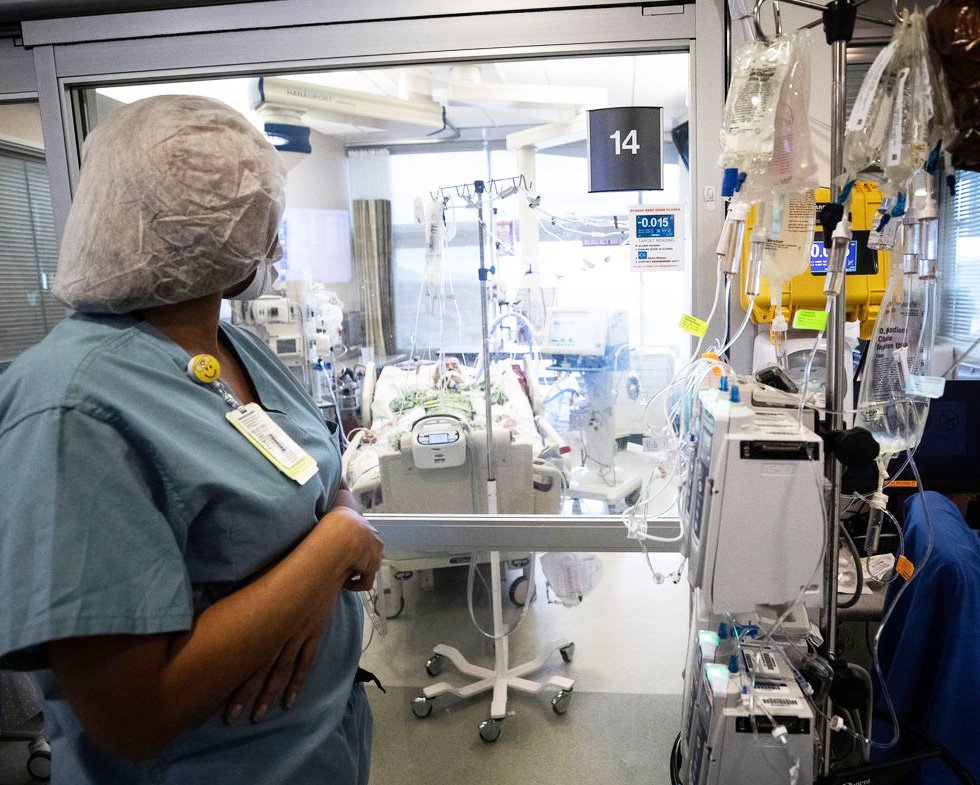In December 2019, unfamiliar and serious cases of pneumonia started to appear at hospitals in Wuhan, China. Doctors were stumped. They began sending off an unusually high number of samples to local labs for genomic sequencing to see if a new virus was lurking in patients’ lung fluid. By the end of the month, there were clusters of these pneumonia infections in at least three separate families, an indication that a new virus was spreading among people.
Any one of these and other events might have tipped us off that something dangerous was under way in China. Any one of them might have been picked up by a foreign intelligence service. But the press reporting is that U.S. health officials didn’t know these facts in December. American health officials seem to have had limited information about the seriousness of what was happening. It now seems that China’s own Center for Disease Control wasn’t informed. By January, many of the usual channels for public-health cooperation between the U.S. and China went dark.
In the U.S., there is a longstanding aversion to involving the tools of national security in public health. Health officials don’t want to cooperate with intelligence services for fear that it will impede their multilateral commitments or that intelligence groups will classify important sets of data. Many worry that every American working in a lab coat overseas will be perceived as a spy.
But without help from public-health officials, intelligence agencies are less equipped to spot relevant information. The intelligence community can’t protect sensitive public-health concerns unless public-health officials work with them and explain the issues. And without relationships in the public-health world, intelligence services may have a harder time sharing the information they do receive.
Covid proved that international conventions and cooperation can’t be the sole backstop in a crisis. We need more capability for gathering information when there are signs of outbreaks. This means we’ll have to rely on more-traditional national-security tools, including intelligence services.
The need is underscored by the challenges the U.S. Centers for Disease Control and Prevention faced in getting access to samples of the coronavirus when the outbreak first emerged. China refused to share these samples with the U.S., and the World Health Organization refused to pressure China publicly to release them. This wasn’t the first time in recent years that China has declined to share samples of a dangerous new pathogen.
The National Security Council recently re-established a position to focus on pandemic risks, and this is an opportunity for improvement. American adversaries already treat information on infectious diseases the way they handle other national security material: They engage their intelligence agencies in helping to monitor and mitigate these threats. The U.S. should do the same, which would also help bring threats to the attention of policy makers. Senators aren’t reading academic papers, but they are reading the CIA’s World Intelligence Review and other estimates, which should include relevant information on public health.
This reporting would also better inform diplomats: Perhaps they’re monitoring a foreign lab with fragile controls. Feeding intelligence estimates to diplomats has been a hallmark of arms-control efforts and inspections and can also help improve biosecurity and surveillance. By now most Americans agree that pandemics are a threat to national security. It’s time to start treating them like one.
Dr. Gottlieb is a resident fellow at the American Enterprise Institute and was commissioner of the Food and Drug Administration, 2017-19.







